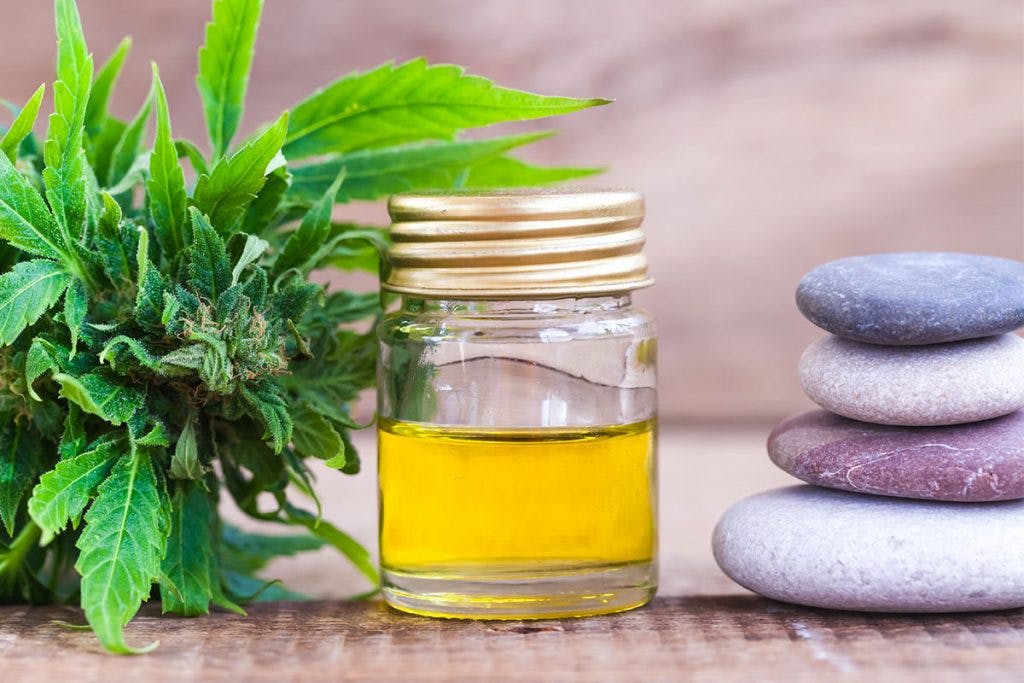CBD Oil: Everything You Need To Know (Is It Safe?)
CBD oil is known for it’s potential as a medication for many mental and physical illnesses. Now in the spotlight as a natural nutraceutical, CBD is gaining popularity as an ingredient in many food products.

Bare Blends
2019-05-19

CBD oil is known for it’s potential as a medication for many mental and physical illnesses. Now in the spotlight as a natural nutraceutical, CBD is gaining popularity as an ingredient in many food products.
Cannabidiol (CBD) can be derived from both hemp and cannabis, and has been publicised in recent years as an effective anti-seizure medication, a possible antidepressant, a sleep mediator, and a relief from chronic pain.
Hemp-derived CBD is now also gaining currency as an active ingredient in many new products. In fact, it stole the show at the Natural Products Expo West which was held in Los Angeles a few months ago. Present in many of the products that were exhibited, CBD oil was available in drops, infused into water and juices, in cookies and snacks, and much more.
Although there is still some haziness over cannabidiol and its effects, mainly due to a lack of research and regulation, it is now legal in many countries around the world, and there is a growing need for consumer information.
What is CBD Oil?
Cannabidiol (CBD) is a phytocannabinoid - a chemical compound that can act on the endocannabinoid system in cells that alter the release of neurotransmitters in the brain.
There are 113 different cannabinoids that can be isolated from cannabis, including psychoactive compounds such as tetrahydrocannabinol (THC).
Unlike its cousin cannabis sativa, hemp contains very low levels of THC. Because CBD oil is derived directly from the hemp plant, you won’t experience a ‘high’ from consuming it.
The evidence for CBD health benefits
Acclaimed for a wide array of health benefits, the strongest scientific evidence is for CBD’s effectiveness in treating epilepsy syndromes. In multiple studies, CBD oil was proven to be able to reduce the number of seizures, and in some cases, it could prevent seizures altogether.
CBD oil may also be useful in the treatment of chronic pain. It does this by impacting endocannabinoid receptor activity, which reduces inflammation and interacts with neurotransmitters.
Another notable benefit is CBD’s potential in treating certain mental illnesses such as anxiety. It is also in early clinical trial stages for treating post-traumatic stress disorder (PTSD) and schizophrenia.
CBD is not addictive - it has actually been presented as an intervention for addictive behaviours in studies that have noted it’s therapeutic benefit on psychostimulant addiction.

Is CBD oil safe?
Although the benefits sound promising, a lot is still unknown about CBD. The effects of long-term use, how it acts on the brain, and how it impacts brain development is still unclear.
There are also side effects associated with CBD intake. It can cause fatigue, nausea, and irritability. It can also interfere with other medications that a person may be taking.
Most CBD oils that are legally available in countries such as the US, are almost completely unregulated. Scientists and professionals emphasise that studies on CBD oil are very limited. With limited research, we still don’t know the most effective therapeutic dose of CBD for any particular medical condition.
There has also been some indication that CBD intake could be harmful to the liver by increasing liver enzymes.
Should you try CBD?
If you’re considering trying CBD oil (and if it is legal in your country), then consulting a doctor is advisable. Considering that CBD intake can interfere with other medications is cause for concern.
Because the claims made by marketers aren’t yet based on long term studies, it is advisable to approach all CBD products with scepticism. In saying that, the research that has been conducted is proving CBD to be an exciting phytoceutical which could help in the treatment of many conditions.
Considering that much is still unknown about CBD, and more research is needed to discern any aftereffects, there is still much more to discover about how beneficial it could be to human physiology.
Although it isn’t yet legal in Australia, we look forward to more information and research becoming available as many countries move to legalise CBD. What happens next could be instrumental in shaping the future of natural nutraceuticals, and we’re looking forward to seeing which products are released.
Get your hands on some
Bare Greens of your own.
- Detoxify and energise
- Improve digestion
- Support an active lifestyle
References:
https://www.ncbi.nlm.nih.gov/pmc/articles/PMC5767492/
https://onlinelibrary.wiley.com/doi/abs/10.1002/j.1532-2149.2013.00445.x
https://link.springer.com/article/10.1007/s13311-015-0387-1
https://www.ncbi.nlm.nih.gov/pmc/articles/PMC4444130/
https://mentalhealthdaily.com/2018/02/09/cannabidiol-cbd-side-effects-adverse-reactions/
https://www.ncbi.nlm.nih.gov/pubmed/19675519

